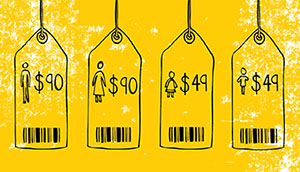
President Obama proclaimed January 2014 as National Slavery and Human Trafficking Prevention Month.He has said that trafficking “ought to concern every person, because it is a debasement of our common humanity. It ought to concern every community, because it tears at our social fabric. It ought to concern every business, because it distorts markets. It ought to concern every nation, because it endangers public health and fuels violence and organized crime. I’m talking about the injustice, the outrage, of human trafficking, which must be called by its true name — modern slavery.”
 Human trafficking is a critical global challenge today. Nearly 30 million people are bought and sold worldwide, currently working under forced conditions. Between 14,000 and 17,500 people are trafficked into the United States annually. Approximately 80% of victims are women and girls, and up to 50% are minors. This massive global problem literally crosses borders, and demands cohesive, collaborative efforts from international partners.
Human trafficking is a critical global challenge today. Nearly 30 million people are bought and sold worldwide, currently working under forced conditions. Between 14,000 and 17,500 people are trafficked into the United States annually. Approximately 80% of victims are women and girls, and up to 50% are minors. This massive global problem literally crosses borders, and demands cohesive, collaborative efforts from international partners.
It’s not just governments who are working to deal with this tragic and overwhelming reality. American businesses are also stepping up to the challenge to create innovative solutions that tackle the issue. Carlson, a leading hospitality and travel company out of Minnesota, with brands such as Radisson and Country Inns and Suites, is a prime example.
When CEO Marilyn Carlson Nelson learned that most trafficking happens through hotels, she led a movement to adopt and promote business practices that aim to protect victims of human trafficking. All Carlson employees are trained to recognize signs of human trafficking. With Carlson employing more than 175,000 people in more than 160 countries, their potential impact to identify and combat trafficking is enormous. To maximize this effort, Carlson Companies distributes these materials freely to any of their counterparts in the hospitality industry.
The U.S. Agency for International Development has also taken large steps to amplify their work around human trafficking. USAID’s Counter-Trafficking in Persons Policy provides a backbone for the agency’s work and includes a training program and manual for all USAID employees, and strengthened regional approaches that combat cross-border trafficking. As well, USAID has partnered with AusAID and MTV on MTV EXIT, a robust campaign to raise awareness and promote positive behavior change to drive social action. By using pop culture, concerts, film, social media, and other venues of mass consumption, this campaign is bringing the message of human trafficking to the mainstream and facilitating the movement to end human trafficking and modern slavery.
These initiatives are just a few examples of the important efforts under way. Just as slavery ended in our country, we look forward to the day when the scourge of human trafficking is ended around the world.